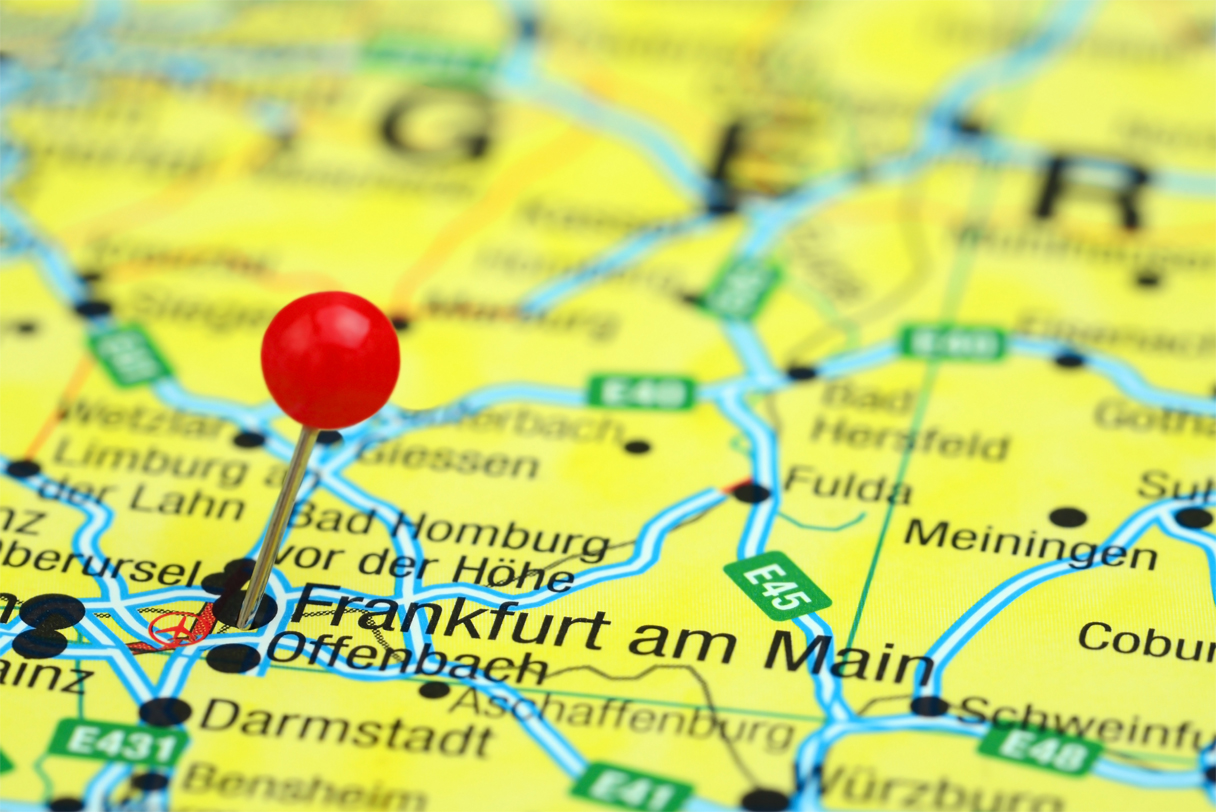Telehouse Global Spotlight: All Digital Roads Lead to Frankfurt
December 14, 2016Strong Economy and Strict Privacy Laws Make Frankfurt a Global Epicenter for Colocation
After the Second World War, Frankfurt am Main was rebuilt and soon emerged as a leading financial and commercial hub in West Germany. The city experienced strong economic development due to its central position on the Main River and its expansion into neighboring domestic markets.
Fast-forward to present day and Frankfurt, now a bustling international metropolis and the financial capital of Europe, is still experiencing strong growth, particularly on the digital front. Germany is now one of the four leading colocation markets in Europe, and the largest population of its data centers can be found around the city of Frankfurt where the majority of internet traffic from Germany and many other countries is routed.
The Place to Be in Germany
Two decades ago, Frankfurt had a reputation for b ing a somewhat lackluster metropolis. But now, the city —referred to as “Mainhattan” for its downtown skyscrapers— is on a cultural, technological and economic upswing, and rapidly becoming a top destination for colocation providers.
ing a somewhat lackluster metropolis. But now, the city —referred to as “Mainhattan” for its downtown skyscrapers— is on a cultural, technological and economic upswing, and rapidly becoming a top destination for colocation providers.
Frankfurt also plays host to a thriving startup community and the second-largest internet exchange in Europe, DE-CIX, with over 500 ISPs and carriers. Startup growth around the Frankfurt region is occurring at a rate of 22 percent annually, while the rest of Germany is hovering around 13 percent. Meanwhile, its financial technology industry is second only to the UK in terms of overall investment and German fintech business is expected to top $2 billion by 2020.
Don’t mistake Frankfurt as just a startup hub, however. The city has attracted several leading internet players to the area, including Microsoft, Google, AWS, Rackspace and Alibaba Cloud. Singapore-based data center giant Keppel Data Centers Holding (KDCH) also recently acquired a stake in a 20,000 square-foot meter data center in Frankfurt.
What’s more, Frankfurt’s stands to receive a significant boost in job creation and financial growth once Brexit is complete, which could happen as early as next year. Several international banks, including Citigroup Inc., are now considering leaving London for Frankfurt when this happens. This will undoubtedly benefit Frankfurt’s financial colocation providers.
Data Privacy, Post-Brexit
Once Brexit is complete, any financial company that moves to Germany will need to comply with the country’s strict data privacy regulations, which are among the tightest in the world. Germany’s data privacy laws are a big reason why Frankfurt is such a hotbed for colocation today. All businesses must adhere to the Federal Data Protection Act, or Bundesdatenschutzgesetz (BDSG), which requires the majority of the nation’s data to be housed within Germany. Plus, each German state has its own strict data protection laws that businesses must follow. These complex regulations are proving to be beneficial for colocation providers offering hosted cloud services that are in compliance with local and federal regulations. Rackspace is one company that cited data residency as a primary factor for moving its new facility to Frankfurt.
A Record-Setting Year for Colocation
Just how successful is the Frankfurt colocation market? Through 3Q16, the Frankfurt market recorded an astounding 30.3MW of colocation. This was the highest annual take-up of any European market to date. At this pace, Frankfurt could surpass London as the top colocation center in Europe by year’s end.
Telehouse is an active player in Frankfurt’s booming colocation market, with over 260,000 square-feet of data center space in the heart of the city. Telehouse operates Frankfurt’s largest data center campus in Kleyerstrasse, a telecommunications hub that houses many carriers and ISPs. The campus includes three data centers that connect to DE-CIX and is an ideal location for global enterprises that need a strong point of presence in a strategic and highly-secure location within Europe’s largest national economy.


